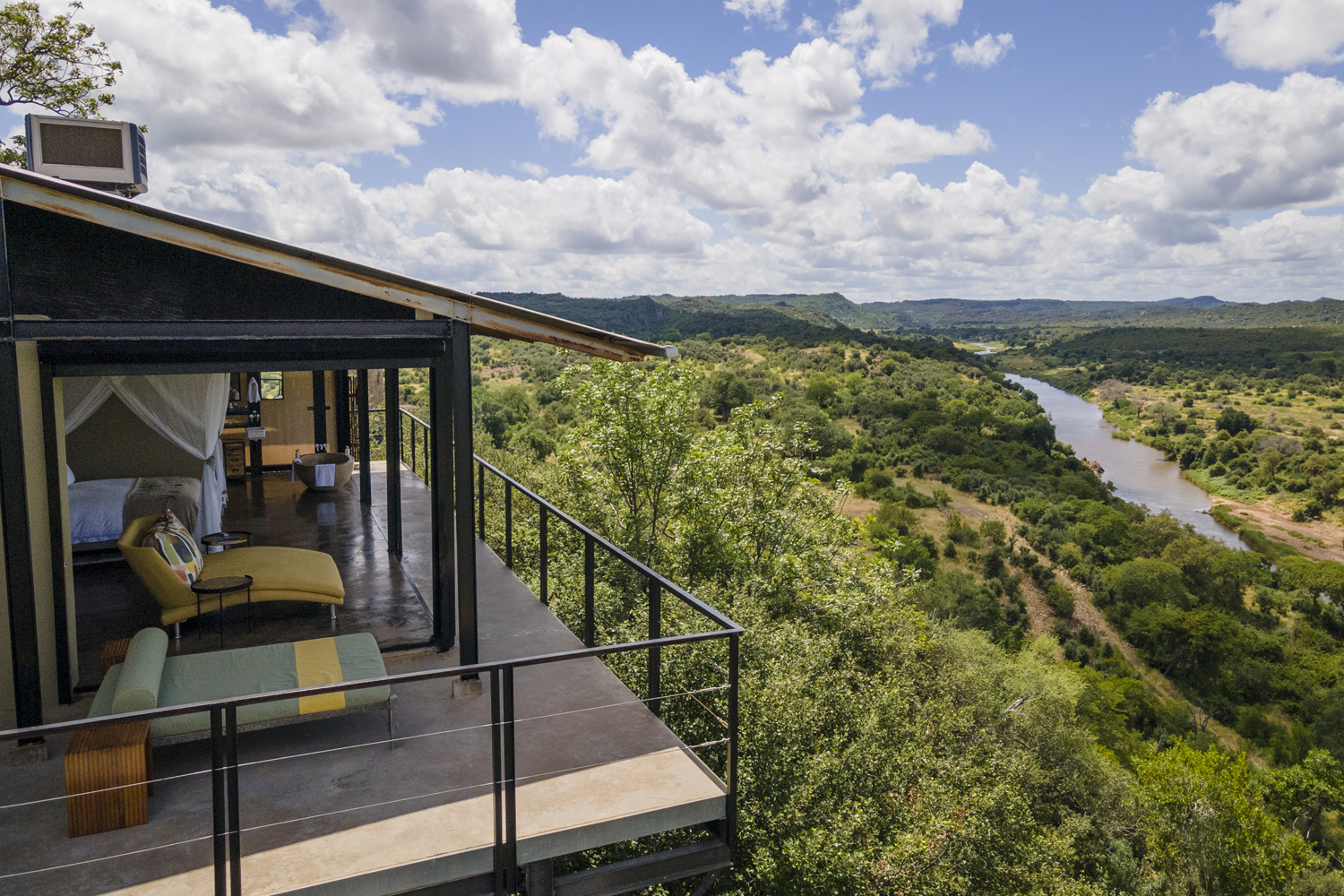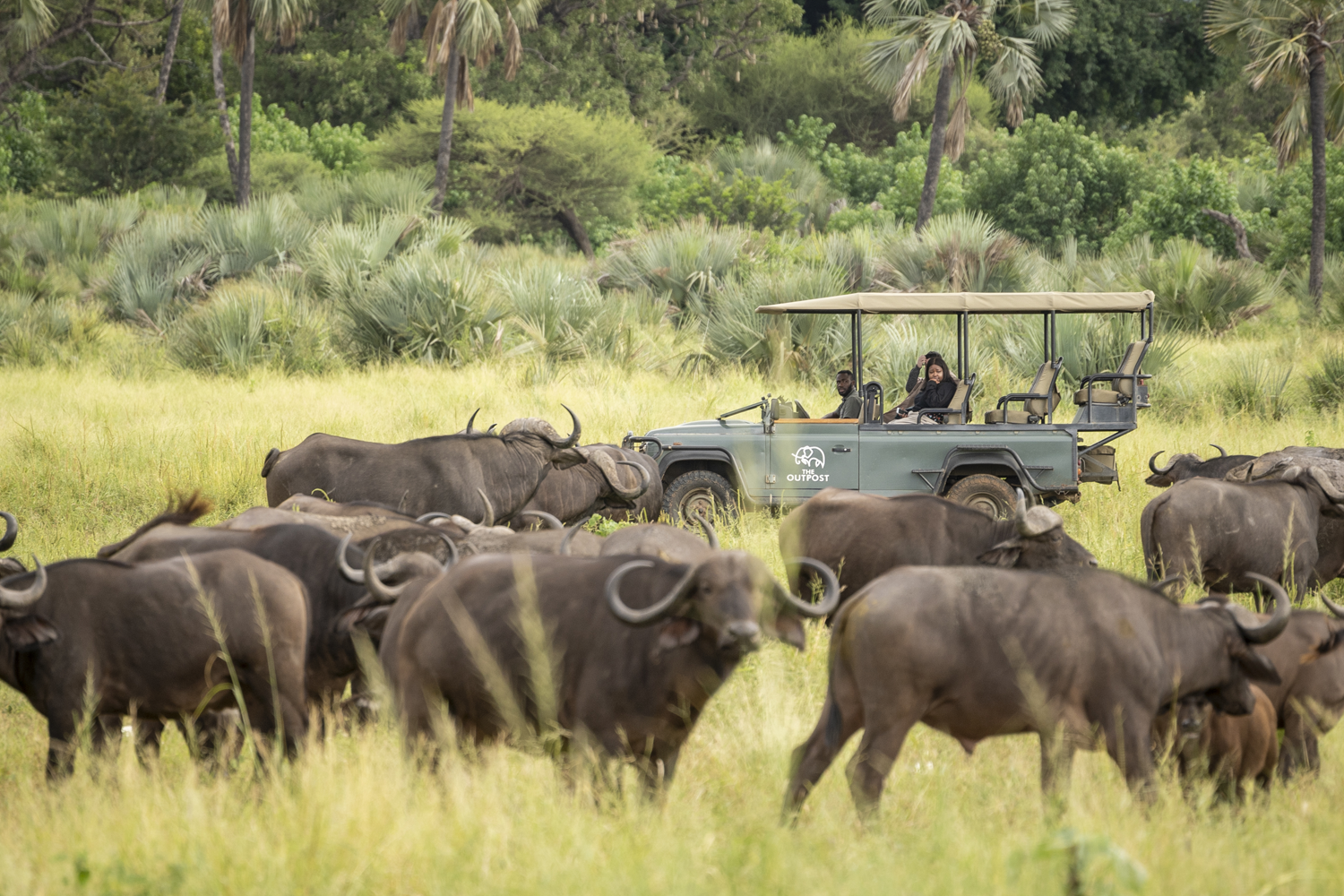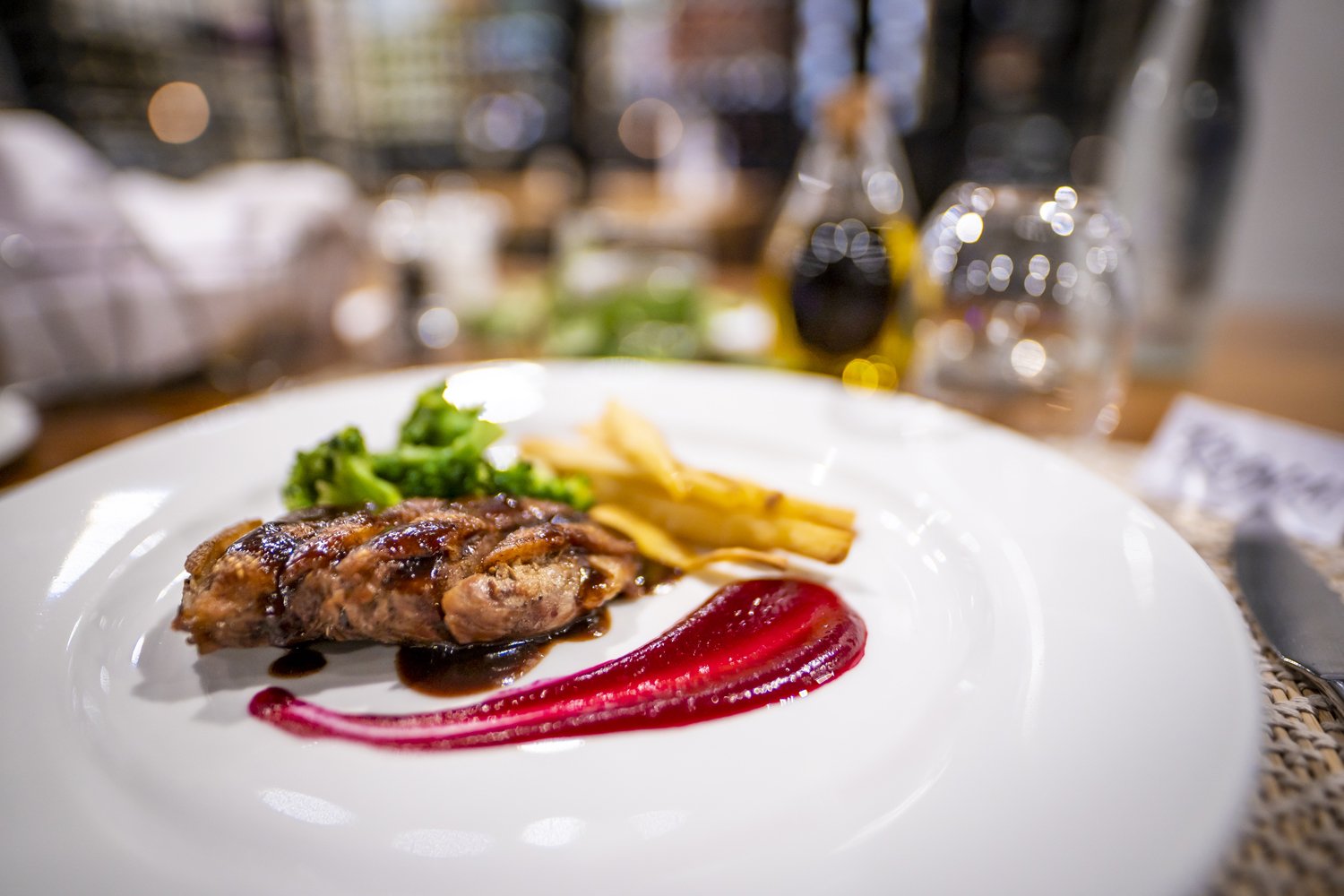Henry Jones, Commissioning Editor for the UK’s Daily Mail, recently visited the northern corner of the Kruger National Park and stayed with us at The Outpost. His experience included sensational game viewing and bird sightings, as is expected in the “Eden of Kruger”, as well as some poignant observations of the area’s relative isolation from the busier parts of the park further south – something he refers to as “the most gorgeous solitude”.
His original article is below, having first appeared in the Mail Online on 3 February 2023:
Take a trip on South Africa’s really wild side: This safari has no phone signal – and feels a world away from the crowds
Henry Jones visits Pafuri, an area of private bushland in Kruger National Park. There, he witnesses ‘some of the richest and most varied wildlife in the country’.
Black sky erupts into brilliant purple, white and electric blue. The air is thick with the stench of wet mud and pollen. Huge bullets of hot rain graze our skin and hammer the open-top Land Rover as we wrestle our way through sodden dirt tracks.
‘Welcome to Africa,’ our guide Bongani laughs, with one hand on the wheel and a torch in the other. ‘Big cats love the rain, it’s the perfect camouflage.’
An hour ago it was a baking 35c (95f). Now the herds of zebra, nyala, impala, buffalo, kudu, waterbuck — and more — that dozed in the muggy evening have all scampered for shelter.
As we reach the only stretch of Tarmac for miles around, a pungent smell of oil rises from the road. Slick tar steams in the headlights and, up above, the night continues to jolt itself awake.
Then we screech to a stop.
Two baby elephants galumph into the road ahead, followed swiftly by rather angry-looking parents waving their trunks at us.
‘We have to keep moving, the rain’s distressed them,’ Bongani shouts.
Back in my room — a sleek concrete construction perched on stilts off the edge of a rocky incline overlooking the Luvuvhu river — the thunder relaxes outside and the hymnic buzz of cicadas returns.
Yesterday I was in chilly North London. Now I’m a two-hour drive from any notable civilisation with no phone signal, let alone Wi-Fi. I sleep like a log.
The Outpost is one of just two lodges in Pafuri, a 65,000-acre area of private bushland and the uppermost section of South Africa’s Kruger National Park.
We’re at the very north of the country here, away from the touristy bustle of the main park further south. Down there you can safely expect the ‘Big Five in one drive’. But what you forgo in copious game sightings in Pafuri, you get back in the most gorgeous solitude.
The weather is almost tropical; and with that comes some of the richest and most varied wildlife in the country.
Pafuri makes up less than two per cent of the wider Kruger bush, yet it contains a staggering 80 per cent of the region’s bio-diversity, including some 350 species of rare birds.
Red hornbills (or Zazu from the Lion King), bright-blue Meves’s starlings, green Tarzan pigeons and purple rollers swirl past. ‘Did you see that shadow overhead?’ I ask.
‘A black eagle,’ Bongani says, barely looking up.
‘And that alarm-like call?’ A tropical boubou. ‘And that chirping in the distance?’
‘That’s a zebra, Henry’. Life quickly shifts here; it’s dinner by candlelight out on the veranda of the main lodge soon after sunset and — freed from emails, social media and box-set binges — it’s early to bed before an even earlier start.
Suddenly I’m a ‘morning person’, jumping up at 5am to gawk on the balcony at the cinematic scene unfolding in 4D: orangey-pink deliciousness bursting over misty grasslands and fat baobab trees.
The Outpost offers two drives a day, one at dawn and one into nightfall, with time in between to swim at the lodge’s pool or indulge in a spa treatment.
The room achieves the desired indoor-outdoor-but-not-really-too-outdoor blend.
All that separates you from the elements is canvas and a mosquito net. But the free-standing bath and other hotel finishes are welcome luxuries.
Trucks loaded with freezers bring in weekly deliveries of dragon fruit, venison steak, rainbow trout and rabbit. And I find it surprisingly easy to slip into the routine of coffee and muffins first thing, followed by breakfast, lunch, high tea and a three-course dinner.
My drive companions for the stay, British couple Simon and Sarah, visited four years ago and have returned for a 30th birthday.
One day, gathered at the top of Lanner Gorge for a sundown gin and tonic, Simon gets down on one knee and proposes.
Of course, Sarah accepts (how could she not!) and we toast them with champagne.
Before apartheid, Pafuri was home to the Makulekes. A 1969 government edict saw the land forcibly taken and its people displaced. But when the area was returned to rightful ownership in 1996, the community chose not to go back, instead renting it to lodges which almost exclusively hire staff, like Bongani, of Makuleke heritage.
Our drives, therefore, are punctuated by countless lessons: that wild sage is rubbed on the skin as an insect repellent. That leopard urine smells like popcorn. That the call of blacksmith lapwings sounds like the clank of a hammer on metal.
And that lala palms from Zimbabwe are so called because their sap can be brewed into a highly intoxicating drink (‘lala’ means ‘to sleep’).
This is Bongani’s home; and ours to enjoy for a brief — but dazzling — time only.
SUMMER SAFARI PROMOTION
Book, pay and stay at The Outpost before 28 February 2023 from just R3,450 per person per night sharing.
Situated in arguably one of the most scenically beautiful wilderness areas in the Kruger National Park, The Outpost is home to nearly 80% of Kruger’s biodiversity, including over 350 species of birds. Perched on a hill high above the Luvuvhu River, expect panoramic views from every corner and to be immersed in beauty, splendour and stillness.



















